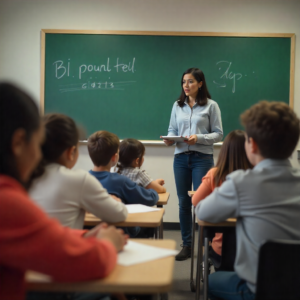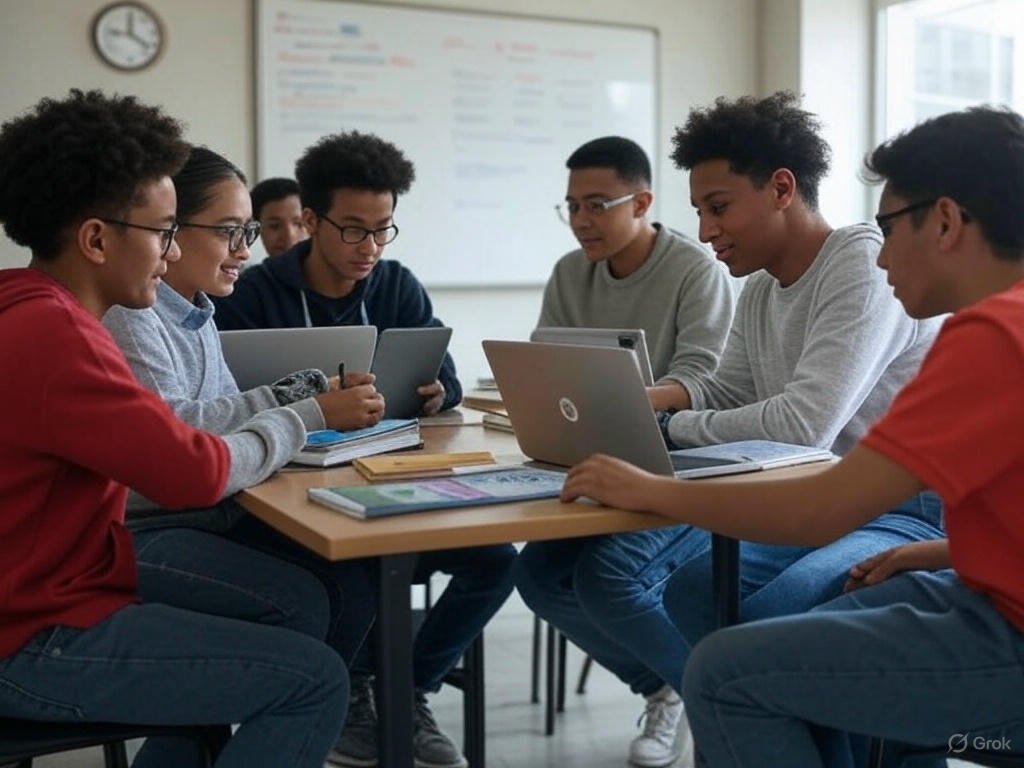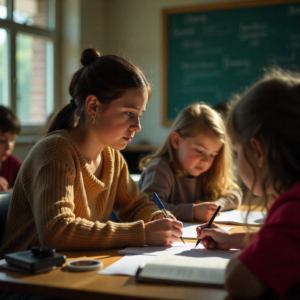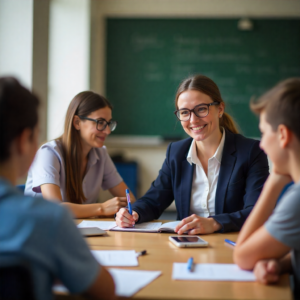
Schools Want AI, Teachers Are Scared: How Leaders Can Bridge the Trust Gap
Discover practical AI approaches that help teachers save time and teach more creatively – by reducing admin work, enhancing lesson ideas, and supporting student engagement

In today’s high-pressure, competitive society, academic success alone is no longer enough to measure student success. As student needs shift, so does acknowledgment and appreciation of life skills, critical assets for developing academic, personal, and overall success. These skills assist in facilitating expression, stress management, healthy relationships, decision making, and goal focus maintenance. With education becoming more holistic in focus, integrating life skills into school life becomes a priority in developing active, well-rounded human beings.
Modern learning requires so much more than mere memorization of facts. In order to truly thrive, students need to acquire a broad set of skills that enable them to navigate their education as well as life. Academic success is crucial, but it is frequently determined by skills that are not explicitly taught through conventional subjects.
Time Management: Scheduling appropriately avoids last-minute stress. Simple techniques like calendars or daily goal setting keep learning in order.
Communication Skills: Good communication facilitates classroom participation and improves group work outcomes. Presentations and role-playing help to build these skills.
Emotional Regulation: Remaining calm while taking an exam or arguing with friends is essential. Teaching students how to practice mindfulness enables them to regulate their emotions.
Critical thinking and group activities: Critical thinking equips students to analyze information, solve problems, and make rational decisions. Group debate and discussion encourage such intellectual skills.
These life skills are powerful strategies in developing academic achievement, in the interactive classroom era of today.
Studies show the positive relationship between life skills and cognitive functioning. Goal orientation, emotional control, and self-concept were determined to contribute significantly to students’ mode of learning, memory, and utilization of knowledge.
Self-Awareness: The better understanding of strengths and weaknesses enables students to plan their study schedule more effectively. Journaling and self-assessment measures encourage this awareness.
Goal Setting: SMART goals keep learning directed and measurable. Getting students to set goals every week makes them more regular.
Emotional Regulation: Calm minds learn better. Techniques like breathing and visualization improve memory.
Problem Solving: Solving problems by following a clear strategy builds confidence. Incorporating real-life situations within the classroom helps make problem-solving a fun and realistic experience.
These activities, based on neuroscience and psychology studies, are demonstrations of how life skills enhance brain capacity and scholastic success.
Academic pressure generally generates tension, which is not healthy for performance. Learning to manage emotions develops resilience and enhances concentration. Life skills play a significant role in achieving emotional balance.
Along with enhanced academic performance, reduced stress also promotes emotional well-being, another core aspect of success as a student.
School is not just an academic exercise; it is an active social situation. Good people skills allow students to work better for themselves and others. In today’s classrooms, where learning is collaborative and participatory, these people skills become particularly critical.
Empathy: Empathy for others’ feelings builds stronger relationships. Activities such as “walk in their shoes” or group reflection can develop empathy.
Active Listening: Paying attention to what is said strengthens teamwork and reduces conflict. Role-play training can enhance this skill.
Teamwork: Group assignments require planning, compromise, and assistance encouraging leadership skill development in students. Providing alternating team responsibilities offers everyone the chance to contribute.
Game-based collaborative learning: Game-based collaborative learning has the potential to advance these skills substantially.
Good habits determine academic success. Organized students and disciplined students achieve more. Life skills are essential in the development of such enduring habits ensuring lifelong learning.
Smart Goals: Specific, Measurable, Achievable, Relevant, Time-bound goals guide learning. Teachers may model weekly goal-setting to help build student confidence.
Discipline and Routine: Developing routines cuts down on decision fatigue. Designing morning study routines or evening reading routines reinforces consistency.
Perseverance: Grit drives students through challenges regardless of what they face. Effort, not result, praise might help the development of growth mindset.
These achievements give them a strong academic background, setting them up for the challenges of future adulthood.
A student’s mindset influences how they approach challenges. A growth mindset, someone who believes that skills can be strengthened through effort, has been linked to better academic performance.
Encourage Effort-Based Praise: Focus praise on effort and strategies, not ability. This creates a growth mindset.
Normalize Failure: As part of the learning process, failure is inevitable. Teachers can draw on their own experiences to create a safe environment for students to accept failure.
These programs instill resilience and a healthy school climate in which all kids are empowered to excel.
Teaching life skills through the school day does not have to mean overhauling the curriculum. Rather, consistent and simple repetition has the ability to achieve significant change in school work and student behavior.
Emotional Check-ins: A 5-minute emotional check-in provides students with the freedom to express themselves. Emotion charts or short group discussions are used by teachers.
Regular classroom discussions: Regular classes set on a routine basis provide opportunity for safe, genuine interaction. Class discussions of real-life issues enhance critical thinking and understanding.
Project-Based Learning: Project-Based Learning promotes collaboration and builds problem-solving abilities through engaging in real-world projects. Product development or planning an event are some of the projects that make learning concrete.
By means of life skills which merge naturally into action-oriented learning tasks, children emerge as skilled, self-assured, and wholehearted beings. Bravery running through their veins, they surmount studies with difficulties, supported by reflective coping solutions against stress. Conversation comes easily to them, co-operation comes spontaneously, and they take ownership of their learning. Schools everywhere on this globe already prove that this does work in producing real, measurable success.
The whole-person education revolution is no longer a fad; it’s a necessity. It’s time policymakers, parents, and educators place life skills on the same platform as academics. Even incremental changes, like daily checks or a growth mindset, have long-lasting and profound impacts. By providing them with the simple necessities of life, not only are we enhancing their success in scholarship, but also providing them with bright futures.
Let’s work together to make life skills a core part of education. Encourage your school to introduce game-based learning activities, support interactive learning, and build a school culture that values personal growth. The path to student success begins with stronger life skills—let’s take the first step today.
Looking for a curriculum that builds essential life skills while improving ELA scores, reducing chronic absenteeism, and minimizing behavioral issues? Visit TomoClub and book your free demo today!

Discover practical AI approaches that help teachers save time and teach more creatively – by reducing admin work, enhancing lesson ideas, and supporting student engagement

Discover a clear, actionable process for schools to integrate AI with purpose – by aligning goals, upskilling staff, selecting the right tools, and building a future-ready learning culture that supports both teachers and students.

Discover practical AI approaches that help teachers save time and teach more creatively – by reducing admin work, enhancing lesson ideas, and supporting student engagement

Discover practical strategies for school leaders to transform staff conflicts into collaboration – by fostering open communication, building trust, and implementing proven approaches that strengthen
Explore insightful articles and updates that keep you abreast of the evolving landscape of education, ensuring you stay ahead in your educational journey.